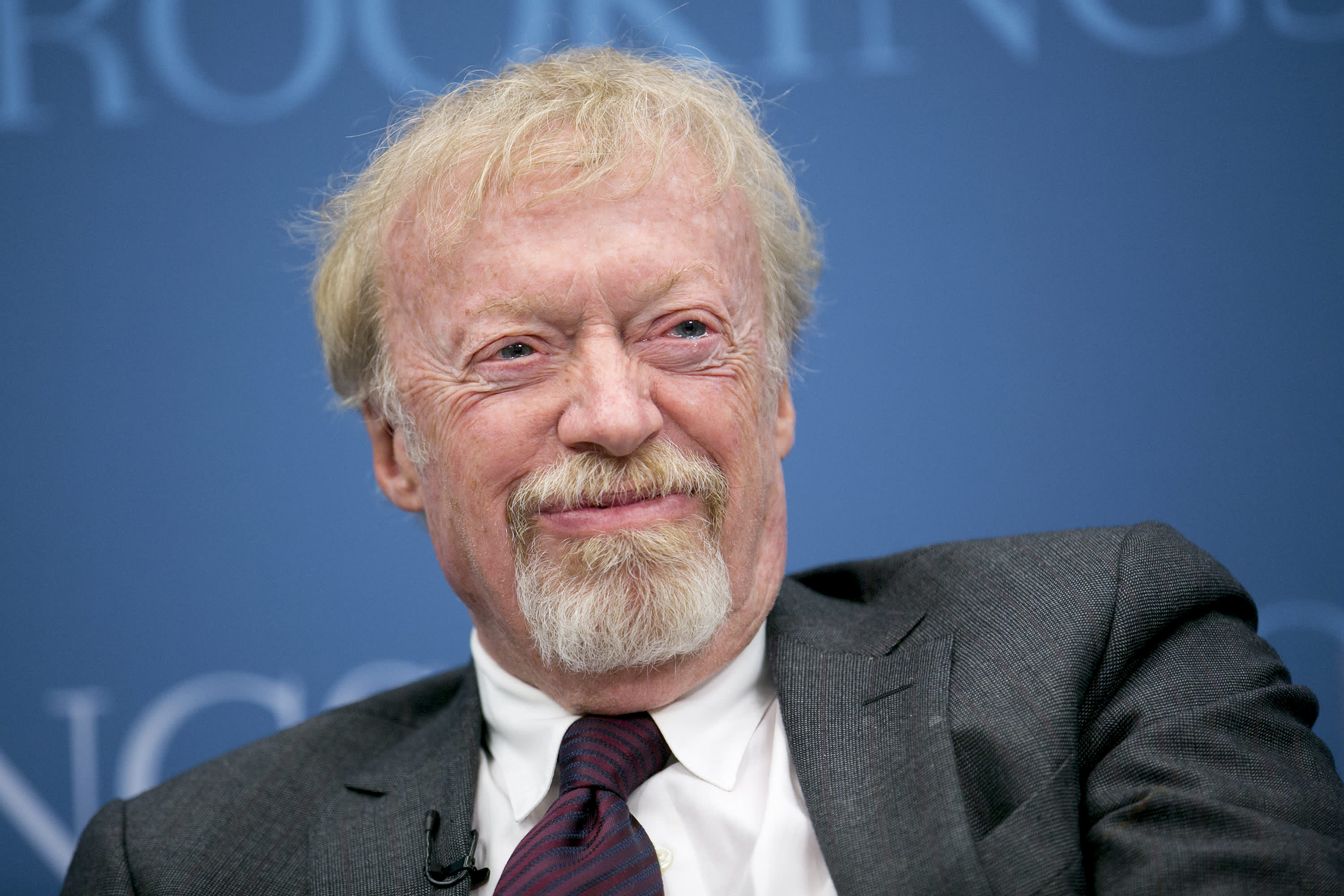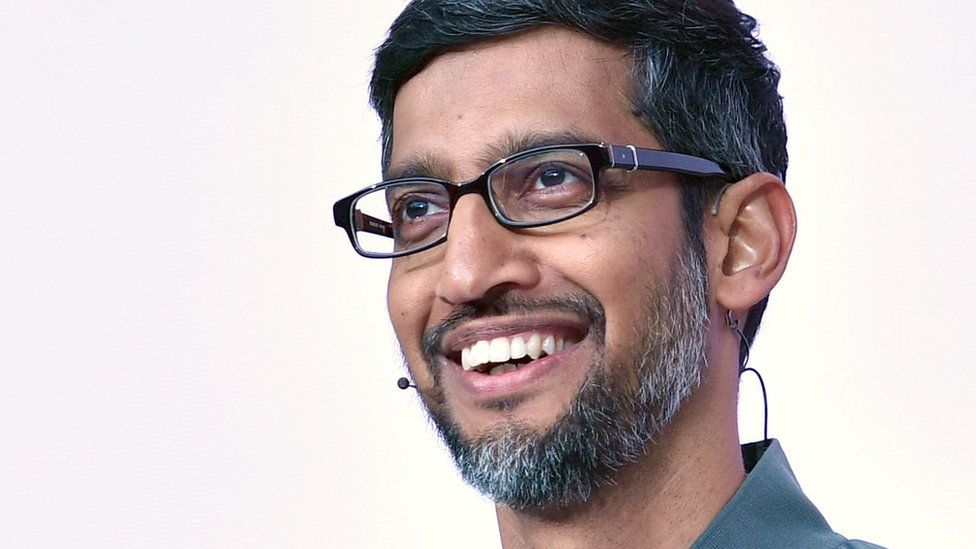Top
Top 15 Highest Paid Employees

Earning a big wage is one of the most sought-after milestones for many professionals in today’s society. Companies are prepared to spend top money to recruit and keep the finest personnel in their respective sectors as competition for top talent grows.
It’s no wonder, therefore, that the highest-paid workers are often those with remarkable abilities, experience, and expertise.
This article will look at the world’s top 15 highest-paid workers. These people have had tremendous success in their jobs, earning wages that are beyond the typical person’s greatest aspirations.
Whether you’re interested in the inner workings of the corporate world or the world of professional sports and entertainment, this list will give you a look into the lives of the world’s highest-paid workers.
15. LeBron James
NBA player LeBron James plays for the Los Angeles Lakers (NBA). He won four NBA titles, four NBA MVP Awards, and two Olympic gold medals.
LeBron James has developed a profitable financial empire via investments and commercial activities. He invests in Blaze Pizza, SpringHill Entertainment, and Liverpool Football Club.
LeBron James was the 15th highest-paid employee in 2021, earning $96.5 million from $31.5 million in pay and $65 million in endorsements, according to Forbes. Nike, Coca-Cola, and Beats by Dre promote him.
14. Neymar Jr
Brazilian soccer player Neymar Jr., usually known as Neymar, now competes for Paris Saint-Germain and the Brazil national team.
The FIFA World Cup, the Copa America, and the UEFA Champions League are just a few of the accolades he has received over his career, which has led many to believe him to be one of the finest soccer players in the world.
Neymar is a thriving businessman off the field and has a long list of endorsement deals with well-known brands like Nike, Red Bull, and Gillette. He also debuted his own, accessory, and footwear company, NJR, which offers a variety of items.
13. Lionel Messi

Lionel Messi plays for Paris Saint-Germain and Argentina. He has won the FIFA World Cup, Copa America, and UEFA Champions League.
Messi has several corporate sponsorships, including Adidas, Pepsi, and Huawei. The Messi Store sells apparel and accessories.
Messi earned $110 million in 2021, $75 million in salary, and, $35 million in sponsorships, according to Forbes. His wages and sponsorships make him one of the world’s richest soccer players.
12. Cristiano Ronaldo

Ronaldo plays for Manchester United and Portugal. He won the FIFA World Cup, UEFA European Championship, and UEFA Champions League.
Ronaldo has several corporate sponsorships like Nike, Herbalife, and Clear. CR7, his fashion company, sells clothes and accessories.
Ronaldo was the 5th highest-paid employee in 2021, earning $120 million from pay and sponsorships, according to Forbes. He is one of the world’s richest soccer players due to his pay and sponsorships.
11. Roger Federer

Switzerland’s Roger Federer is a legendary tennis player. He is the only male player to have won 20 Grand Slam singles championships.
Federer has several commercial sponsorships, including Rolex, Mercedes-Benz, and Credit Suisse. Roger Federer, his tennis and lifestyle brand, sells gear, clothes, and accessories.
Federer was the 11th highest-paid employee in 2021, earning $106.3 million, including $6.3 million in salary and $100 million in sponsorships, according to Forbes. He is one of the world’s richest athletes due to his sponsorship agreements.
10. Dara Khosrowshahi

Uber CEO Dara Khosrowshahi is an Iranian-American businessman. After 12 years as CEO of Expedia Group, a renowned online travel firm, he joined Uber in 2017.
Khosrowshahi has led Uber through many reforms and measures to improve operations, including a renewed emphasis on safety and the addition of bike-sharing, electric scooters, and food delivery.
In 2021, Khosrowshahi was the 10th highest-paid employee in the world, receiving $30.2 million from $1.5 million in salary, $28.5 million in stock awards, and $167,000 in other pay, according to Forbes.
9. David Zaslav

David Zaslav is the CEO of Discovery, Inc., which owns Discovery Channel, TLC, Animal Planet, and Food Network. Since 2007, Zaslav has led Discovery’s growth into new markets and programming.
Discovery has bought Scripps Networks Interactive and Golf Digest under Zaslav’s direction. Zaslav also launched Discovery+, a streaming service with programming from Discovery’s cable networks.
Zaslav was the 8th highest-paid employee in the world in 2021, earning $37.7 million, including $3 million in salary, $33.and 5 million in stock awards.
8. Michael Fries
Liberty Global’s CEO, Michael Fries, is American. Fries has led Liberty Global since 1990, serving as CEO since 2005.
Liberty Global is one of the leading cable TV and broadband internet providers in Europe, Latin America, and the Caribbean under Fries’ leadership.
Horizon Go, which allows on-demand access to popular TV series and movies, was launched under Fries’ leadership.
7. Robert Kotick

Activision Blizzard, which owns Call of Duty, World of Warcraft, and Candy Crush, is run by American businessman Robert Kotick. Since 2008, Kotick has been ActiActivision.
Activision Blizzard, with a $60 billion market worth, has grown under Kotick’s leadership. Kotick has managed the company’s expansion into esports and mobile gaming and developed numerous blockbuster video games, including Call of Duty and Skylanders.
In 2021, Forbes listed Kotick as the 2nd highest-paid employee in the world, earning $142 million with $1.8 million in salary, $139 million in stock awards, and $174,999 in other pay.
6. Phil Knight

Phil Knight, an American businessman, co-founded Nike, Inc. Knight was Nike’s CEO from 1964 until 2004.
Nike’s market worth is above $200 billion under Knight’s leadership. Knight directed Nike’s expansion into new industries including fitness technology and wearable devices and oversaw the creation and distribution of numerous classic Nike products, including the Air Jordan basketball shoe series.
Knight earned $3 million in salary, $25.1 million in stock awards, and $1 million in other income in 2021, according to Forbes.
5. Joseph Ianniello

Joseph Ianniello was CBS Corporation’s CEO from 2018 to 2019. Ianniello joined CBS in 1997 and served as COO before becoming CEO.
Ianniello managed CBS’s digital expansion, including the introduction of CBS All Access. He negotiated the 2019 CBS-Viacom merger, creating ViacomCBS, an international media company.
In 2021, Forbes listed Ianniello as the 9th highest-paid employee in the world, receiving $116.6 million from $125,000 in salary, $115 million in stock awards, and $1.5 million in other remuneration.
4. Thomas Rutledge

One of the biggest cable television and broadband internet providers in the US, Charter Communications, is headed by American businessman Thomas Rutledge.
Since joining Charter in 2012, Rutledge has been in charge of managing the company’s initiatives to increase its product offerings and strengthen its network infrastructure.
With a market value of more than $130 billion, Charter has grown to be one of the biggest cable providers in the nation under Rutledge’s direction.
3. Sundar Pichai

Alphabet Inc.’s CEO, Indian-American Sundar Pichai, runs Google. Pichai joined Google in 2004 and held different managerial positions until becoming CEO in 2015. He succeeded co-founder Larry Page as Alphabet Inc. CEO in 2019.
Google’s search engine, Android mobile operating system, and Google Cloud have continued to innovate under Pichai’s leadership.
In 2021, Pichai was the 6th highest-paid employee in the world, receiving $209.2 million from $2 million in salary, $204 million in stock awards, and $3.2 million in other remuneration, according to Forbes.
Pichai’s pay reflects Google’s worldwide technology sector influence and his leadership in the company’s expansion.
2. Tim Cook

Apple Inc.’s CEO, Tim Cook, is American. Cook became Apple’s CEO in 2011, following Steve Jobs. Apple has continued to innovate and introduce new products and services under Cook, including the iPhone, iPad, and Apple Watch.
Cook has also spearheaded the company’s environmental and social initiatives, such as using 100% renewable energy and supporting human rights and equality. Cook earned $265 million in 2021, according to Forbes.
1. Elon Musk
The CEO and co-founder of many businesses, including SpaceX, Tesla, Neuralink, and The Boring Company, Elon Musk is a South African-American business mogul, industrial designer, and engineer.
Musk is renowned for his bold aspirations, which include transforming the way we travel through space, finding sustainable energy sources, and ushering in a new age of transportation.
Tesla has developed into a top producer of electric automobiles, while SpaceX has become the first privately financed firm to fly people into space.
Both organizations are led by Elon Musk. Musk has also publicly expressed his worries about climate change and made investments in renewable energy sources like solar energy and energy storage.
In 2021, Musk, who received no salary, $7.5 billion in stock options, and $300 million in additional remuneration, was the highest-paid employee in the world, according to Forbes.
The enormous effect that Musk’s businesses have had on the world economy and his role in pushing the frontiers of innovation are isreflectedn his salary.
Conclusion
In conclusion, a range of sectors, including technology, sports, entertainment, and media, account for the top 15 highest-paid workers in the globe.
These people have made important contributions to their respective industries and have received honors for their achiachievementsadership, and invention.
Along with some less well-known names like Michael Fries and Joseph Ianniello, the list has well-known individuals like Elon Musk, Tim Cook, and Cristiano Ronaldo.
Their significant contributions to their organizations and the global economy are reflected in their substantial salaries.
Top
Is OctaFX Legit? Examining the Broker’s Global Standing

The world of modern finance has become one of the most dynamic and fast-growing environments. Today, technology, investment, and online trading blend into a single ecosystem where millions of people explore new financial opportunities. As more traders turn to global platforms for forex and CFD trading, one question appears again and again: is OctaFX legit?
Octa is a well-established international broker with more than a decade of global presence. Over the years, it has built a reputation for offering competitive spreads, reliable execution, and modern trading tools suited for different styles of trading. Its user friendly interface and stable platform performance have made it a familiar choice among both beginners and experienced traders who value consistency and transparency.
Although Octa operates under international frameworks rather than domestic regulation in one specific country, this model is widely used by global brokers that follow recognised industry practices. Many international trading platforms choose this structure to reach a wide audience while maintaining high operational standards. For traders, the key factors that determine whether a broker is legitimate include secure transactions, fair order execution, protection of personal data, and clear communication. Octa supports these principles by openly presenting its trading conditions, keeping client funds in segregated accounts, and applying strong security measures to protect user information.
As the culture of investing develops, traders increasingly understand that legitimacy is not only about regulation. It also involves education, risk awareness, and access to reliable information. Octa provides analytical tools, webinars, tutorials, and market insights that help users learn the basics of trading and gain deeper knowledge. This educational support encourages responsible decision making and reflects a global transition toward long-term skill building rather than quick speculative behaviour.
Of course, trading always carries risk. No broker, regardless of its reputation, can remove market volatility or shield users from the consequences of leverage. Octa addresses this openly by displaying clear risk warnings and encouraging traders to approach the financial markets with realistic expectations, discipline, and awareness.
So, is OctaFX legit? Octa operates as an international broker with a strong global presence and a commitment to transparent, secure trading conditions. It gives traders access to world markets while supporting their growth through educational resources and consistent service. Ultimately, success in trading depends not only on the platform but also on how each trader manages knowledge, strategy, and risk in a constantly changing financial landscape.
Top
Smarter Maintenance Management: How Digital Tools Are Transforming Preventive Maintenance and Facility Operations

In every modern industry — from manufacturing plants to amusement parks — equipment reliability defines performance. Unexpected downtime, inefficient scheduling, and poor asset visibility can drain productivity and profits. As organizations strive to become more data-driven, maintenance departments are adopting smarter systems to manage assets, schedule repairs, and ensure safety.
This digital shift is powered by Computerized Maintenance Management Software (CMMS) — a technology that has evolved from simple work-order trackers to intelligent, cloud-based solutions capable of predictive analytics and full asset lifecycle management.
One of the most respected names in this field is MAPCON, a leading CMMS platform trusted by facilities teams, manufacturers, and maintenance professionals worldwide. Known for its scalability and ease of use, MAPCON helps organizations streamline operations, improve equipment reliability, and reduce maintenance costs.
This article explores the essential role of maintenance management systems, why preventive maintenance matters, and how software like MAPCON supports smarter, safer, and more efficient operations — from factory floors to amusement parks.
1. Understanding Preventive Maintenance in the Digital Age
Preventive maintenance (PM) is a proactive approach to equipment care that focuses on performing regular inspections, adjustments, and replacements before a breakdown occurs.
Rather than waiting for machinery to fail, PM strategies aim to detect issues early — extending equipment lifespan and minimizing costly downtime.
The Traditional Challenge
In the past, preventive maintenance was often managed with spreadsheets, paper logs, or basic scheduling tools. These systems lacked integration and visibility, making it difficult to track maintenance history or coordinate team activity. Miscommunication between departments led to missed inspections and inconsistent data.
The Modern Solution
Enter digital PM systems, designed to automate scheduling, store maintenance records, and provide analytics on equipment health. A PM maintenance software solution enables organizations to:
- Schedule and track recurring maintenance tasks automatically
- Monitor asset performance in real time
- Manage spare parts inventory efficiently
- Assign work orders and track completion digitally
- Generate performance reports to guide future maintenance decisions
The result is a well-organized, efficient operation where maintenance isn’t reactive — it’s predictive.
2. The Core Benefits of Implementing PM Maintenance Software
Whether you manage a manufacturing plant, a school district, or a large facility, investing in preventive maintenance software delivers measurable value. Here are the most important advantages:
A. Reduced Equipment Downtime
One of the biggest costs in operations is unplanned downtime. Preventive maintenance systems analyze asset performance and alert technicians before a breakdown occurs — ensuring continuous production and minimal disruption.
B. Cost Efficiency
Reactive repairs are typically 3–5 times more expensive than planned maintenance. Using software like MAPCON allows organizations to optimize work schedules and part usage, reducing overtime and emergency service costs.
C. Extended Equipment Lifespan
Regularly maintained equipment lasts longer and performs more efficiently. Maintenance software keeps a complete digital record of service history, enabling teams to follow proper care routines.
D. Data-Driven Decision Making
CMMS tools collect data on asset failures, repair frequency, and cost trends. These insights empower managers to identify which assets are underperforming and when replacement might be more cost-effective.
E. Regulatory Compliance and Safety
Industries such as food processing, energy, and healthcare must follow strict maintenance standards. A well-designed CMMS helps ensure compliance by documenting all maintenance activities and inspection records in one centralized system.
3. How MAPCON Enhances Maintenance Efficiency
MAPCON stands out among CMMS solutions for its blend of simplicity, flexibility, and advanced functionality. It’s designed to serve both small facilities and large, multi-site enterprises.
Here’s how MAPCON supports better maintenance management:
User-Friendly Interface
Unlike many enterprise systems that are overly complex, MAPCON offers an intuitive design that allows maintenance teams to adapt quickly. Dashboards and visual reports make it easy to monitor asset performance at a glance.
Customizable Preventive Maintenance Scheduling
MAPCON’s PM module enables users to set schedules based on time, meter readings, or condition. Whether a task repeats weekly or is triggered by equipment usage, the system ensures no maintenance activity is overlooked.
Mobile and Cloud Access
With mobile compatibility, technicians can receive, update, and close work orders directly from the field. This mobility reduces paperwork and keeps communication streamlined across teams.
Integration Capabilities
MAPCON integrates with enterprise systems such as ERP, SCADA, and inventory management tools, creating a unified maintenance ecosystem that enhances collaboration across departments.
Scalability
From single-facility users to global manufacturers, MAPCON scales effortlessly. Its modular design allows organizations to add features as they grow, keeping costs manageable.
4. Real-World Example: Preventive Maintenance in a Manufacturing Plant
Imagine a manufacturing plant that operates 24/7. The facility relies on dozens of production machines — conveyors, compressors, and motors — each with different maintenance schedules.
Without a centralized system, technicians may forget tasks, skip checks, or duplicate work. Over time, these inefficiencies lead to unexpected failures and production loss.
By adopting a PM maintenance software solution like MAPCON, the company can:
- Assign recurring PM tasks with automated notifications
- Track parts usage and reorder inventory automatically
- Log maintenance history and performance metrics digitally
- Identify underperforming equipment using data analytics
After implementation, downtime drops, equipment reliability improves, and maintenance budgets become more predictable.
This kind of transformation demonstrates why digital maintenance systems are no longer optional — they’re essential.
5. Data-Driven Maintenance: From Preventive to Predictive
While preventive maintenance prevents most equipment failures, predictive maintenance (PdM) takes this a step further using real-time data from sensors and IoT devices.
By monitoring vibration, temperature, and performance metrics, predictive systems can identify early warning signs of mechanical failure — even before visual inspection reveals a problem.
Modern CMMS platforms like MAPCON integrate seamlessly with these IoT devices, combining preventive and predictive data to deliver a comprehensive maintenance strategy.
This integration enables managers to plan repairs with precision, reduce spare parts waste, and improve overall asset utilization.
6. Maintenance Management Beyond Manufacturing: Amusement Parks and Entertainment Venues
Maintenance isn’t limited to factories and facilities. In the entertainment industry, reliability is just as critical — particularly for amusement and theme parks where safety and uptime are paramount.
Unique Challenges
Amusement parks have hundreds of mechanical assets — rides, lighting systems, water pumps, sound systems, and food equipment — all operating under heavy daily loads and strict safety regulations.
Failures not only affect guest satisfaction but can also lead to serious safety risks.
Digital Solutions for Park Operations
A dedicated amusement park management software platform can revolutionize how parks handle maintenance. Using MAPCON, operators can:
- Schedule daily, weekly, or seasonal inspections
- Track ride maintenance history and compliance records
- Assign safety checklists digitally to technicians
- Manage spare parts inventory and vendor contracts
- Access mobile dashboards for live status updates
This ensures rides operate safely, maintenance teams work efficiently, and visitors enjoy a worry-free experience.
Industry Example
Consider a large theme park in Florida implementing a digital maintenance system to manage over 400 attractions. By switching from manual logs to MAPCON’s CMMS, they reduced inspection time by 35% and improved safety audit readiness across all sites.
This demonstrates how robust maintenance software isn’t just for factories — it’s vital in every asset-intensive environment.
7. Asset Tracking and Equipment Reliability
Every maintenance department depends on accurate asset information. A CMMS provides this visibility by tracking:
- Equipment ID and location
- Purchase and warranty details
- Service history and downtime records
- Spare parts inventory linked to each asset
Using MAPCON’s asset management features, organizations gain a real-time view of every asset’s condition. This allows for smarter budget allocation, better scheduling, and fewer surprise failures.
8. Streamlining Communication and Team Collaboration
Maintenance involves coordination between technicians, supervisors, procurement, and management. Poor communication often leads to delayed repairs or redundant work orders.
MAPCON’s centralized system ensures everyone has access to the same up-to-date information. Mobile apps let field technicians upload photos, update job status, and request parts — all while managers track progress in real time.
This collaboration reduces paperwork, improves accountability, and ensures timely task completion.
9. Compliance and Safety Management
Compliance is non-negotiable in regulated industries. Whether it’s OSHA, ISO, or manufacturer-specific standards, companies must maintain detailed records of every inspection and repair.
MAPCON’s CMMS simplifies compliance by automatically storing logs, certificates, and digital signatures. When auditors request proof of maintenance, managers can generate reports in seconds.
In amusement parks, where safety inspections are required daily or weekly, this automation saves hours of administrative work.
10. How Maintenance Software Supports Sustainability Goals
Sustainability is an increasing priority for organizations around the world. Preventive maintenance plays a key role by:
- Reducing waste through longer equipment lifespan
- Minimizing energy consumption with efficient operations
- Ensuring safe disposal and recycling of spare parts
MAPCON’s analytics allow managers to track energy-intensive assets and plan maintenance that aligns with environmental goals — helping organizations balance operational efficiency with eco-responsibility.
11. The ROI of CMMS Implementation
The financial benefits of implementing maintenance software can be substantial. Studies show that organizations using CMMS experience:
- 20–30% reduction in equipment downtime
- 10–15% lower maintenance costs
- 5–10% higher equipment lifespan
- Increased safety and compliance readiness
For most companies, CMMS systems pay for themselves within the first year of deployment through reduced emergency repairs and better asset utilization.
12. Future Trends in Maintenance Management
As industries evolve, maintenance technology continues to advance. Emerging trends include:
- Artificial Intelligence (AI) for predictive analytics
- Augmented Reality (AR) for hands-free technician guidance
- Digital Twins for virtual simulation of asset performance
- Integration with ERP and IoT ecosystems for unified data flow
MAPCON remains at the forefront of these innovations, helping organizations stay competitive by turning data into actionable insight.
13. Choosing the Right CMMS for Your Organization
Selecting the best maintenance software depends on your operational scale, industry, and goals. Key considerations include:
- User-friendliness and ease of setup
- Cloud versus on-premise deployment options
- Integration with existing enterprise systems
- Mobile access and offline functionality
- Customer support and training availability
MAPCON offers flexible configurations suitable for both small facilities and large enterprises, making it an excellent choice for organizations seeking to modernize maintenance operations without overcomplicating processes.
14. Conclusion: The Future of Maintenance is Smart, Connected, and Data-Driven
From factories to theme parks, maintenance is the foundation of safe and efficient operations. As equipment becomes more complex and expectations rise, digital systems are transforming how maintenance is planned, tracked, and analyzed.
Computerized Maintenance Management Software (CMMS) empowers teams to stay ahead of problems rather than reacting to them — saving time, money, and energy while improving safety and reliability.
Solutions like MAPCON combine decades of experience with modern technology to provide organizations with the tools they need for predictive, preventive, and precise maintenance management.
To learn more about preventive maintenance and asset reliability, explore:
👉 PM maintenance software — for automating scheduling and improving equipment uptime.
👉 Amusement park management software — for ensuring guest safety and efficient operations across rides and attractions.
With smart systems like MAPCON leading the way, the future of maintenance management is intelligent, connected, and built to last.
Top
CisporaSeek: The Smarter Way to Search and Discover Information

We live in a time where there’s no shortage of information — but finding the right information can still feel impossible. Whether you’re researching a topic, comparing data, or looking for reliable sources, you’ve probably noticed that traditional search engines often leave you buried in irrelevant results.
That’s the exact problem CisporaSeek set out to solve.
CisporaSeek.cz is a new kind of search and discovery platform built in the Czech Republic. It uses artificial intelligence, semantic understanding, and smart filtering to deliver search results that actually make sense. Instead of showing you random pages, it focuses on giving you meaningful, verified, and contextual information — fast.
In simple terms: CisporaSeek helps people find what truly matters.
What Is CisporaSeek?
Think of CisporaSeek as an upgraded search assistant — one that understands your intent, not just your keywords.
It’s built with AI-driven technology that reads between the lines of your search, identifies what you’re really asking, and gives you results that are smarter and more relevant.
For example, if you search “climate change policies in Czech Republic,” CisporaSeek doesn’t just show random blogs — it points you to official government reports, local research, and verified media sources.
So instead of digging through dozens of pages, you get high-quality, focused results in seconds.
The Vision Behind CisporaSeek
The idea for CisporaSeek came from a simple observation: there’s a gap between the amount of data online and the quality of what people actually find.
The founders saw how frustrating online research had become — too many ads, unreliable content, and endless scrolling. They believed that search could be smarter, cleaner, and more human.
Their mission became clear:
- Make online search intuitive and intelligent
- Connect users with credible and meaningful sources
- Promote transparency, trust, and knowledge sharing
The result is CisporaSeek.cz — a platform that combines cutting-edge technology with a genuine understanding of how people think and search.
Why CisporaSeek Stands Out
1. Smarter Search Results
Unlike traditional search engines that rely only on keyword matches, CisporaSeek understands the context behind your search.
It uses semantic AI — meaning it recognizes relationships between words and ideas. This helps it provide precise, intent-based answers rather than random matches.
2. Reliable Information Only
CisporaSeek doesn’t show results from low-quality or spam websites. Its algorithm filters out unverified content, prioritizing trusted databases, academic research, government sources, and credible publishers.
That means every search result has real value — not just noise.
3. Locally Focused, Globally Relevant
While CisporaSeek.cz is proudly Czech, its insights reach beyond borders. It’s especially powerful for users who need both local data and international context, making it perfect for students, journalists, businesses, and researchers.
4. Private and Secure
User privacy is built into CisporaSeek’s design. Your searches aren’t tracked, profiled, or sold.
It’s a search platform that puts control back in the user’s hands — a refreshing change in today’s data-driven world.
Key Features of CisporaSeek
| Feature | What It Does | Why It Matters |
|---|---|---|
| AI-Powered Search Engine | Uses language understanding to interpret intent | Smarter, more accurate results |
| Trusted Source Indexing | Prioritizes verified academic and media sources | Cuts out misinformation |
| Personalized Recommendations | Learns from your past searches | Saves time and improves discovery |
| Data Visualization Tools | Turns insights into visual graphs | Great for research and analysis |
| Local + Global Data Mix | Combines Czech databases with international content | Broader perspective |
| Privacy-First Design | Doesn’t track or sell data | Builds trust with users |
How CisporaSeek Helps Different Users?
For Students and Researchers
If you’re writing a thesis, preparing a paper, or doing serious academic research, CisporaSeek saves hours of time. It finds verified academic papers, studies, and reports faster — with full citations and related topics.
For Businesses and Professionals
Companies use CisporaSeek.cz to gather market intelligence, analyze competitors, and monitor brand mentions.
Because it delivers data-driven insights instead of random web links, it’s a valuable tool for marketing teams, strategists, and entrepreneurs.
For Journalists and Media Experts
In journalism, accuracy matters more than ever. CisporaSeek helps media professionals fact-check stories, trace original sources, and stay on top of verified developments — avoiding misinformation traps.
For Government and Policy Makers
By connecting official databases and public records, CisporaSeek simplifies access to critical policy data and regional insights, supporting transparent, data-backed decision-making.
The Technology Behind CisporaSeek
CisporaSeek isn’t just another search bar — it’s built on a strong technological foundation designed for speed, precision, and intelligence.
1. Semantic AI Core
Its artificial intelligence engine uses natural language processing (NLP) to understand human language the way people do.
When you search for something, it interprets what you mean, not just what you type.
2. Machine Learning Adaptation
The more people use CisporaSeek, the smarter it gets. It constantly learns from search patterns to deliver more relevant results over time.
3. Human-Verified Indexing
Not everything can be left to machines. That’s why CisporaSeek also includes manual verification, ensuring that important or sensitive topics are cross-checked by human editors for accuracy.
Making Search Simpler, Not Harder
The biggest advantage of CisporaSeek is how simple it feels.
You don’t need to know how to use advanced filters or Boolean searches. Just type your query, and the platform does the heavy lifting for you.
It also provides:
- Clean, ad-free results
- Quick summaries for long documents
- Suggested topics so you can explore connected ideas effortlessly
In short, it’s a search tool that works the way you wish search engines worked.
CisporaSeek in the Czech Digital Landscape
Czechia is fast becoming one of Central Europe’s most innovative tech hubs — and CisporaSeek is part of that movement.
By combining AI research, local data systems, and human insight, the platform strengthens the country’s digital identity. It supports:
- Smarter public data access
- Better information transparency
- Stronger academic and business collaboration
In a region full of emerging innovation, CisporaSeek.cz stands out as a homegrown solution with global potential.
CisporaSeek vs Traditional Search Engines
| Aspect | CisporaSeek | Traditional Engines |
|---|---|---|
| Search Method | Understands meaning and intent | Matches keywords only |
| Result Quality | Verified and filtered | Mixed, often commercial |
| User Privacy | Protected and anonymous | Often tracked |
| Local Relevance | Strong Czech integration | Global, but less specific |
| Noise Filtering | Minimal ads or clutter | Frequent sponsored results |
A Step Toward Ethical and Responsible AI
CisporaSeek isn’t just about smart technology—it’s about responsible innovation.
Its approach to AI emphasizes:
- Transparency: Every source is traceable and explainable
- Privacy: No personal data exploitation
- Sustainability: Efficient cloud computing to reduce environmental impact
In an age when data misuse is common, CisporaSeek sets a new ethical standard for search platforms.
What’s Next for CisporaSeek
The team behind CisporaSeek isn’t stopping here.
Their roadmap includes:
- Voice-based semantic search for hands-free access
- Collaboration tools for research groups and teams
- Enterprise APIs for organizations to integrate CisporaSeek’s intelligence into their systems
- Educational partnerships to support universities and libraries
In the near future, CisporaSeek aims to become not just a Czech innovation—but a European leader in intelligent search.
Conclusion
In a world drowning in information, clarity is power.
CisporaSeek gives that power back to users — helping them find, understand, and use information that truly matters.
Whether you’re a student, a journalist, or a business leader, CisporaSeek.cz makes discovery faster, easier, and more meaningful.
It’s not just a search engine.
It’s a smarter way to see the world through information that actually makes sense.


































































































































































































































































































































































































